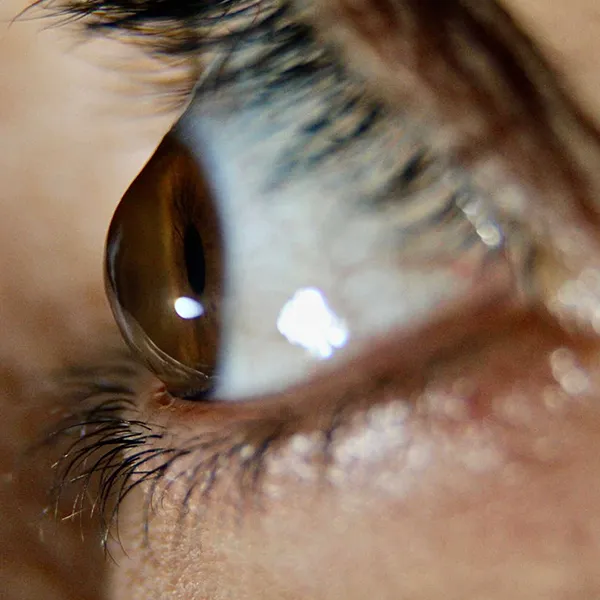
The Best Hospital For Keratoconus Surgery in Chandigarh
Keratoconus is a progressive, non-inflammatory corneal infection. The cornea is the window of the eye and the primary part on which images are focused when we look. Keratoconus causes corneal thinning, which causes bulging and gives the cornea a cone-like shape. Drishti Eye Hospital offers the most effective keratoconus surgery in Chandigarh.
Call to ask any question +91-708-7219008

Dr. Ashok Gupta
(Chairman and founder)
What Is A Keratoconus ?
Understanding Keratoconus
Keratoconus is a condition impacting the cornea, the transparent front membrane of the eye responsible for focusing light onto the retina. Typically, the cornea maintains a smooth, regular shape. However, in individuals with keratoconus, the cornea gradually thins, usually manifesting in late adolescence or early adulthood, leading to a protrusion at its center and a conical, irregular shape. While keratoconus commonly affects both eyes, one eye may experience more advanced symptoms than the other.
Want to know more about us?
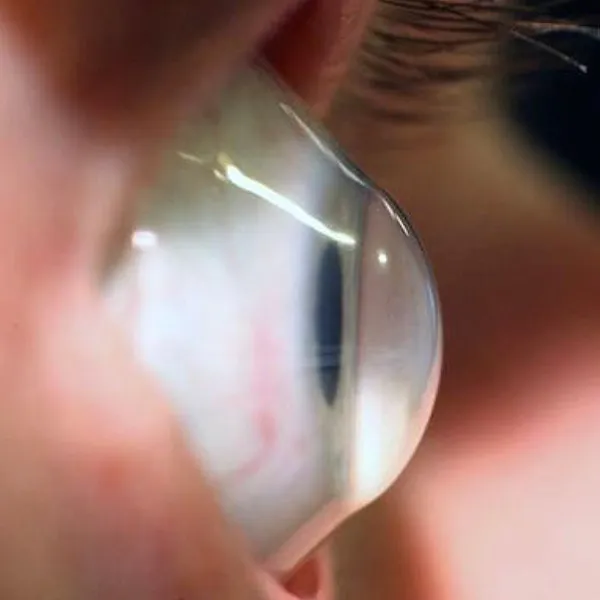
Symptoms of keratoconus vary in severity and may include
Symptoms of Keratoconus
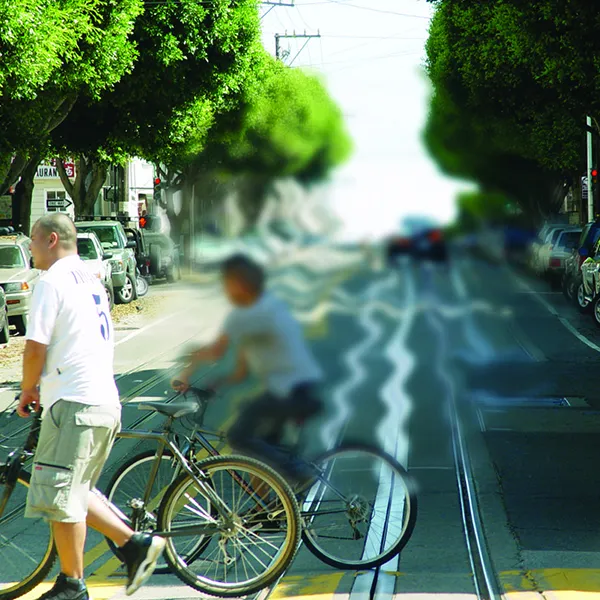
Distorted vision

Sensitivity to light
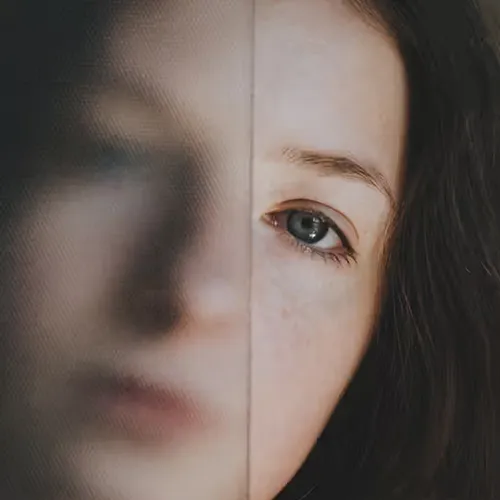
Blurred vision

Glare

Eye irritation and itching
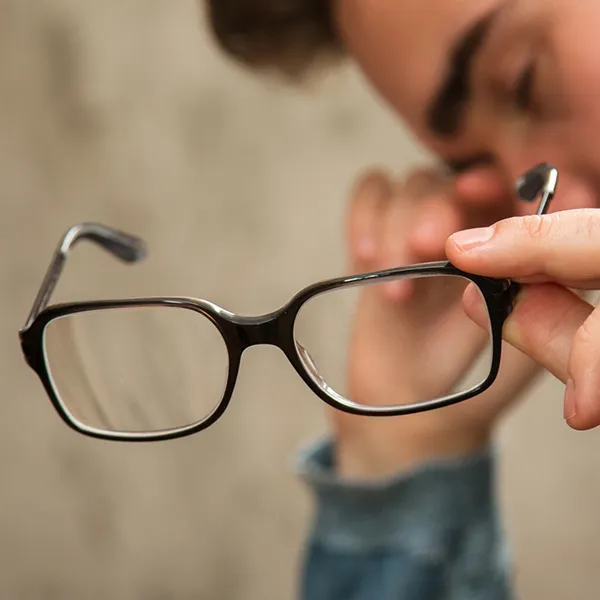
Frequent changes

Difficulty tolerating contact lenses

Causes of Keratoconus
Keratoconus has multifactorial causes, including genetic predisposition and environmental factors such as
Family history
Eye rubbing tendency
Conditions like asthma, allergies, Down syndrome, and Ehlers-Danlos syndrome
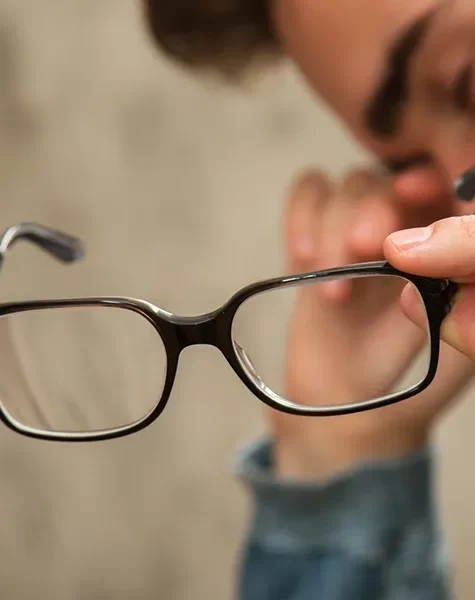


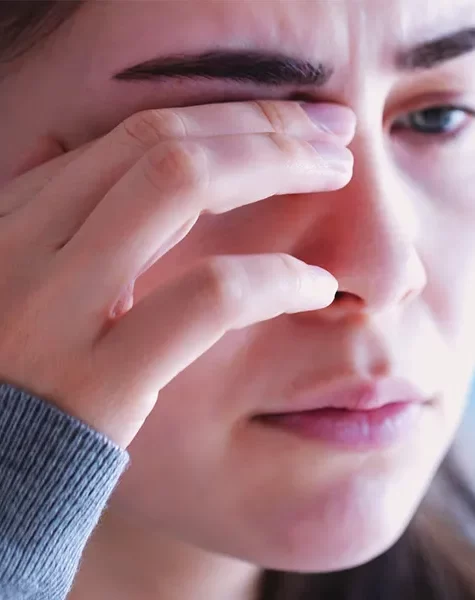
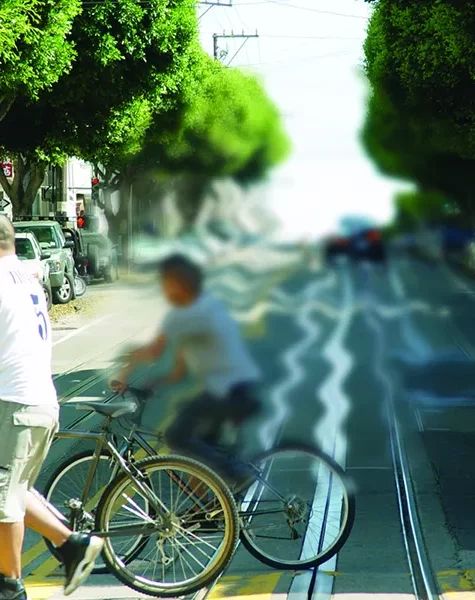
Diagnosis of Keratoconus
A thorough eye exam is necessary to diagnose keratoconus, and this examination includes
Slit-lamp examination
Computerized corneal topography/mapping
Eye refraction test
Slit-lamp examination
A thorough inspection of the eyes using a specialized microscope and a vertical beam of light.
Computerized corneal topography/mapping
Non-invasive mapping of the cornea’s surface curvature like Pentacam.
Eye refraction test
Retinoscopy by an Expert Optometrist /Ophthalmologist.
Treatment Options
Keratoconus treatment requires meticulous care and should only be performed by highly qualified Keratoconus Specialists. The experts at Drishti Eye Hospital initially perform an in-depth examination of your eyes to determine the extent of the damage. Our advanced diagnostic equipment and competent surgeons assist us in evaluating the condition. The choice of treatment depends on individual needs and severity, necessitating discussion with an eye care professional. Treatment options for keratoconus include
Glasses or contact lenses: Initially helpful for mild cases, progressing to specialized lenses like rigid gas permeable or scleral lenses.
Corneal cross-linking: Strengthening the cornea with riboflavin eye drops and ultraviolet light to slow /Halt Progress.
Intacs: Crescent-shaped implants are used to increase vision by flattening the cornea.

Emerging Treatments Include
Corneal collagen cross-linking
Implantable contact lenses
Topography-guided laser treatment
FAQs
Keratoconus is a progressive eye disorder where the cornea, the eye's clear front surface, thins and gradually bulges into a cone shape, resulting in distorted vision.
At Drishti Eye Hospital, we provide the best Keratoconus Treatment in Chandigarh. Keratoconus eye surgery costs around 70,000.
No, this is a misconception. Rigid gas permeable (RGP) contact lenses may temporarily flatten the cornea, but they do not halt the progression of keratoconus. Interventions such as corneal cross-linking are necessary to address the progressive nature of the disease.
In cases of mild to moderate keratoconus, the progression of the condition can be halted through a procedure known as collagen cross-linking with Riboflavin. Additionally, special types of contact lenses may help improve vision. In more advanced cases, a corneal transplant may be necessary for vision improvement.
Treatment options for keratoconus include eyeglasses or contact lenses to correct vision, rigid gas permeable (RGP) contact lenses for better vision and to help reshape the cornea, and in advanced cases, surgical interventions such as corneal cross-linking or corneal transplant may be necessary.
Early detection is paramount in managing Keratoconus. If the condition is progressing, undergoing corneal cross-linking treatment may be necessary, with studies showing it to be 98% effective in halting progression.
Suppose you suspect you have keratoconus or experience symptoms such as distorted vision or difficulty with contact lenses. In that case, it's essential to schedule an appointment with an eye care professional for a comprehensive eye examination.
Yes, individuals with keratoconus can drive as long as they meet the necessary vision requirements.
Relatives of individuals with keratoconus may have a higher risk of developing the condition, so regular eye examinations are recommended, especially if there is a family history of keratoconus.
Following corneal cross-linking surgery, adhering closely to your surgeon's aftercare instructions is crucial for a smooth recovery. Typically, this involves refraining from activities such as driving, swimming, wearing eye makeup, and strenuous exercise until permitted by your surgeon, as well as administering anti-inflammatory eye drops and applying topical antibiotics. Depending on individual medical circumstances, additional measures such as oral antibiotics may be necessary.
Keratoconus cannot be prevented, but individuals can reduce their risk by avoiding eye rubbing.
Symptoms of keratoconus may include blurry or distorted vision, increased sensitivity to light, difficulty driving at night, frequent changes in eyeglass prescriptions, and sometimes, eye irritation or swelling.
While keratoconus can have a hereditary component, it can also be exacerbated by frequent eye rubbing, which is a common characteristic of the condition.
Keratoconus typically starts during the teenage years or in the early 20s. The condition's progression varies among individuals; some may experience rapid vision changes, while others may progress slowly over several years.
Keratoconus may not always affect both eyes to the same degree. In cases where one eye is more severely affected, corneal cross-linking may be performed on the affected eye while the other eye is monitored.
The severity of Keratoconus is assessed by an optometrist who evaluates the steepness of the corneal cones, the thickness of the corneas, and their overall shape. Pentacam is the most reliable test.
Keratoconus typically does not lead to complete blindness, but it can significantly impair vision. Corneal hydrops and contact lens intolerance may occur as the disease progresses, potentially necessitating a corneal transplant. Early detection and management are crucial.
Recovery time varies depending on the type of treatment, ranging from days to a few weeks.
LASIK is typically not recommended for individuals with keratoconus because the procedure may worsen the condition. Other treatment options like corneal cross-linking or specialized contact lenses are more appropriate for managing keratoconus.
Corneal cross-linking boasts an impressive success rate of 95%. However, for the 5% of patients who do not respond to the treatment, underlying health conditions may impede the recovery process. A good diet helps in good results.
Despite affecting vision, keratoconus should not prevent individuals from leading fulfilling lives.
Blurred vision following corneal cross-linking surgery usually takes several weeks to resolve. If you have concerns about the duration of your recovery or your overall eye health, it's advisable to consult with your surgeon for guidance.
Testimonials
Some reviews from our clients
Excellent
Based on 4258 reviews
Himica Khurana
2024-04-15
My mother underwent cataract surgery at this facility. It's well-regarded by many. The team provides compassionate care to all patients. Through pre-surgery check-ups are excellent. Despite the busy environment, they allocate adequate time to each patient. The discussion and counseling about the surgery were conducted patiently, without rushing. On the day of surgery, they provided proper care. The staff is welcoming, and the doctors are highly experienced.
Mandeep Singla
2024-04-14
All facilities are to good
Harsh Goyat
2024-04-14
Good hospitality and cooperation of staff is lucrative. Atmosphere of the hospital is too good.
Patient’s attendant are also treated in constructive way.
Namita Joshi
2024-04-14
Well services , very good and politely staff
Ashita //Aarna
2024-04-14
Good service
Pardeep Dhiman
2024-04-13
Excellent experience
I'm satisfied to visit at this hospital
Hospital service's good
I highly recommend
Kajal Rajain
2024-04-13
I had the best experience with Drishti Eye Hospital
Very polite and supporting staff
Jagdeep Bhery
2024-04-13
Very Nice
SURESH Kumar
2024-04-13
Very good eye hospital at north India

